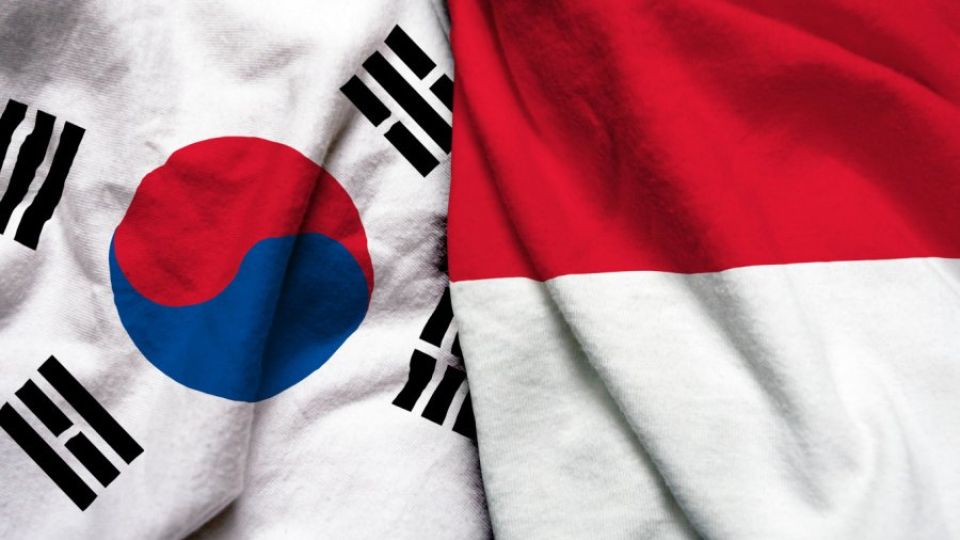January 31, 2023
JAKARTA – As Indonesia and South Korea celebrate 50 years of diplomatic relations, the two countries are eyeing stronger economic cooperation and investment amid the geopolitical tensions in the Asia-Pacific.
Foreign Minister Retno L.P. Marsudi said that over five decades, the two countries had forged even closer ties with each other.
“Today, Indonesia and the ROK [Republic of Korea] are more than close friends. We are special strategic partners,” Retno said in her recorded address, presented at an event in Jakarta on Thursday to mark the 50th anniversary of Indonesia-South Korea diplomatic relations.
She said that Indonesia and South Korea’s bilateral trade volume in 2022 had reached US$20.57 billion, the highest in the last five years.
“This year, we recorded a new milestone with the entry into force of the Indonesia-Korea Comprehensive Economic Partnership Agreement [IK-CEPA],” Retno said.
Negotiations on the IK-CEPA started in 2012, but were suspended in 2014. In 2019, the two countries resumed negotiations, which culminated in their signing the agreement on Dec. 18, 2020. The agreement entered into force on Jan. 1, 2023.
Retno also noted that South Korea was taking part in the development of Indonesia’s new capital Nusantara in East Kalimantan, with investments totaling around $ 6.37 billion that created 58,000 new jobs.
The semicentennial of Indonesia-South Korea relations came amid challenges that included the lingering impacts of the COVID-19 pandemic, a looming economic recession and geopolitical dynamics in the Asia-Pacific, the minister said.
Retno highlighted that the two countries should focus on two things moving forward. The first was to build greener and more sustainable economies, she said, noting that South Korea was investing in Indonesia’s steel and electric vehicle industries.
“Second, promoting stability and prosperity in the Indo-Pacific region. As a dialogue partner for ASEAN, the ROK’s contribution to the concrete implementation of the ASEAN Outlook on the Indo-Pacific is critical. I also look forward to seeing the ROK’s support for Indonesia’s ASEAN chairmanship this year,” she said.
South Korean Foreign Minister Park Jin said in his recorded address for the occasion that he was happy about the two countries’ five-decade relationship, during which the two countries had partnered in a wide range of areas.
He noted that the countries’ cooperation in the traditional manufacturing industry had even expanded into the high-tech industry.
“Today, we make electric cars and fighter jets together. We jointly tackle common global challenges through platforms like MIKTA,” Park said, referring to the partnership grouping Mexico, Indonesia, South Korea, Turkey and Australia.
Park said Indonesia was an “indispensable partner” in Korea’s Indo-Pacific strategy, while the two countries’ cultural and people-to-people exchanges had also flourished.
“We support and have high expectations for Indonesia’s ASEAN chairmanship. We hope for further expansion and deepening [of] Korean and ASEAN cooperation,” he said.
Indonesian Ambassador to South Korea Gandi Sulistyanto said while Indonesia had enjoyed a trade surplus of more than $700 million last year, imports were as important as exports in Indonesia’s economic cooperation with South Korea.
“If [South Korea] imports more capital expenditure, this is actually fair because [it means] we succeeded in getting foreign direct investment to our country,” Gandi said.
Ferry Akbar Pasaribu, deputy assistant for investment strategy and acceleration policy at the Office of the Coordinating Maritime and Investment Minister, said the IK-CEPA’s enactment would see increased trade and investment between Indonesia and South Korea.
Ferry added that Indonesia would make use of the IK-CEPA to increase investments, the flow of goods, as well as exports and imports between the two countries.
“Investors still need to import from the global value chain or from Korea,” he said, underlining that easy flow of goods and services would in turn promote investments.


